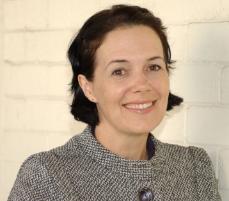Journalism students need broader horizons, says Uni academic
Published on 12 July, 2012
As the recent restructuring of Fairfax Media and News Limited saw some of the country's best news editors walk of the job, the ripple felt throughout the Australian journalism industry has unsettled universities and their current models of journalism education.
The resignation of editors at the Sydney Morning Herald and Melbourne's The Age has been accompanied by hundreds of redundancies of experienced journalists, and top institutions such as the University of Melbourne and the Royal Melbourne Institute of Technology (RMIT) are considering a full review of their programs.
CQUniversity's Head of Program for the Bachelor of Professional Communication Kate Ames says the recent events underline the ever-evolving state of journalism, and that graduates should be prepared to juggle multiple jobs across different news outlets with different mediums.

Head of CQUniversity's Bachelor of Professional Communication program Kate Ames
"The industry is always changing, and the broadness of skills required for graduates looking to enter the industry covers the whole gamut, from digital production, social media skills, and abilities in film, TV and print" she said.
"Gone are the days where you work in one medium and stick to it."
Ames believes the education of future journalists needs to incorporate both theoretical and practical skills, and believes CQUniversity's program will continue to be relevant to industry expectations by balancing the two.
"Industry wants students who can perform all these skills, but the role of a journalist is to effectively tell a story. It's great if students can write a good news story, but knowing why they're writing it and its relevance is just as important" she said.
"CQUniversity's Bachelor of Professional Communication aims to teach these in equal proportions"
Journalism has long been a contracting sector; numerous students with intentions of becoming journalists falling into communications and public relations jobs.
Ames says that there is still a market for journalists in capital cities, but even there corporate jobs are in greater abundance.
"When we reviewed our program about a decade ago, we took a step back and looked at where graduates were going. We realised that there were more going into public relations - they were still getting to use their journalistic skills, but they were operating in a corporate environment" she says.
"We remodelled the course to make public relations the core area of study, but students could also specialise in traditional journalism, digital media and business, allowing them to gain a more well-rounded qualification instead of pin-holing them into certain areas"
She believes that institutions reorienting their programs to a broader communications qualification won't create more journalism jobs, but it will open up different opportunities for graduates.
CQUniversity's Bachelor of Professional Communication has been growing in numbers, and has a strong focus on authentic learning and industry readiness.

